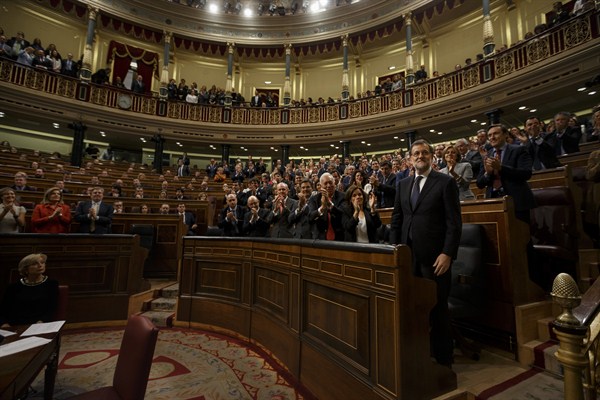Mariano Rajoy of the conservative People’s Party was sworn in on Monday for a second term as Spain’s prime minster, bringing an end to 10 months of political deadlock that included two inconclusive elections. On Saturday, Spanish lawmakers voted 170 to 111 in favor of Rajoy, while 68 members of the Spanish Socialist Workers’ Party (PSOE) abstained. Saturday’s vote came two days before a deadline to avoid a third election in less than a year, which most parties and the public wanted to avoid.
In late August, Rajoy brokered a deal with the center-right Ciudadanos party that shored up significant support within the Spanish Parliament, but not enough for an outright majority. Ciudadanos had previously refused to back Rajoy given the People’s Party’s record of corruption. But after Rajoy agreed to a 150-point program that includes reforming the labor contract system and increasing social spending, Ciudadanos backed off from its demand that Rajoy step down.
Rajoy now faces an uphill battle. His parliamentary majority is the smallest since Spain’s return to democracy in the late 1970s. “We have survived 300 days of caretaker government, but we could not survive a government that doesn’t govern because it lacks supports or is overwhelmed by obstacles,” Rajoy told lawmakers over the weekend. “The cost would be ruinous.”

